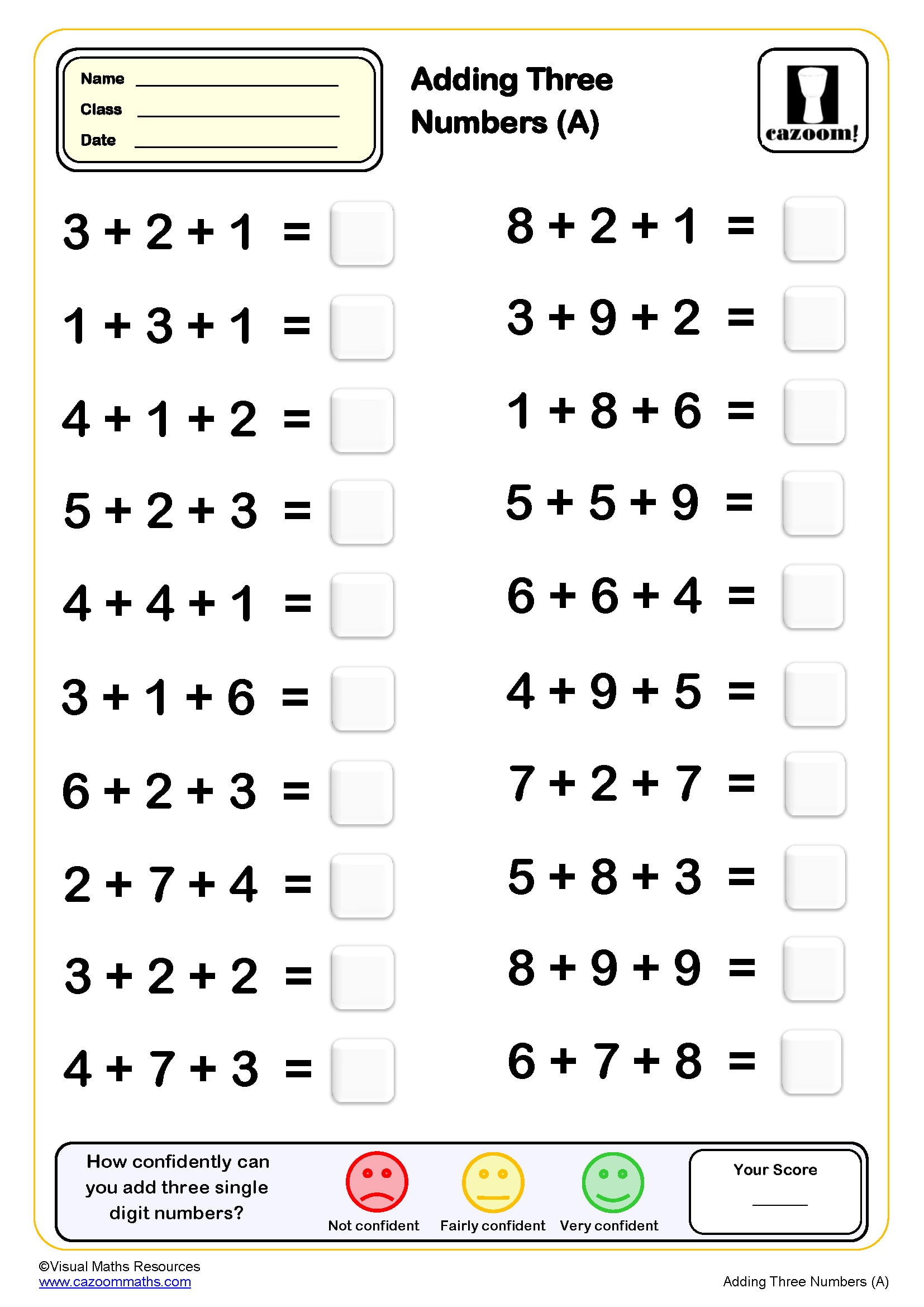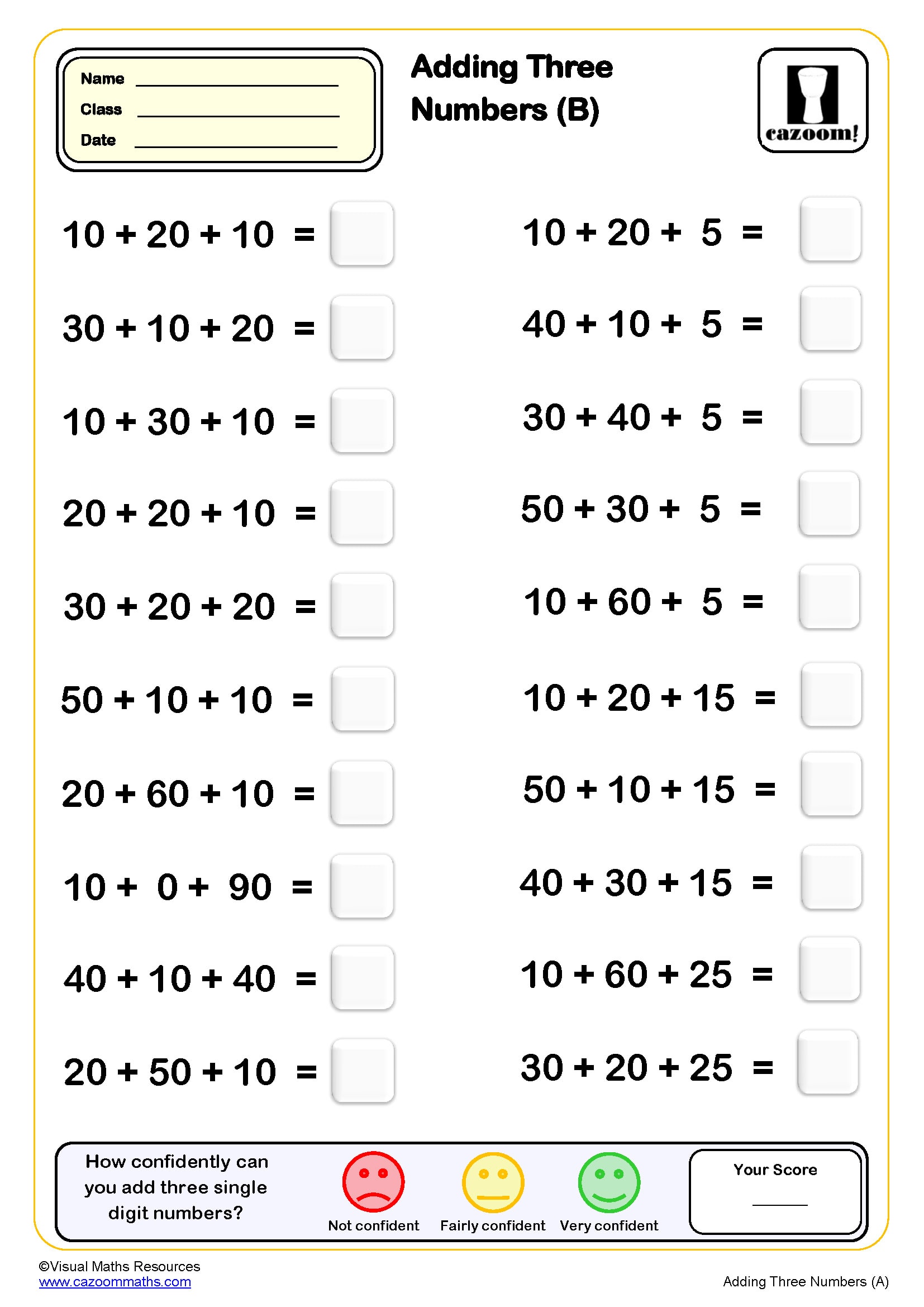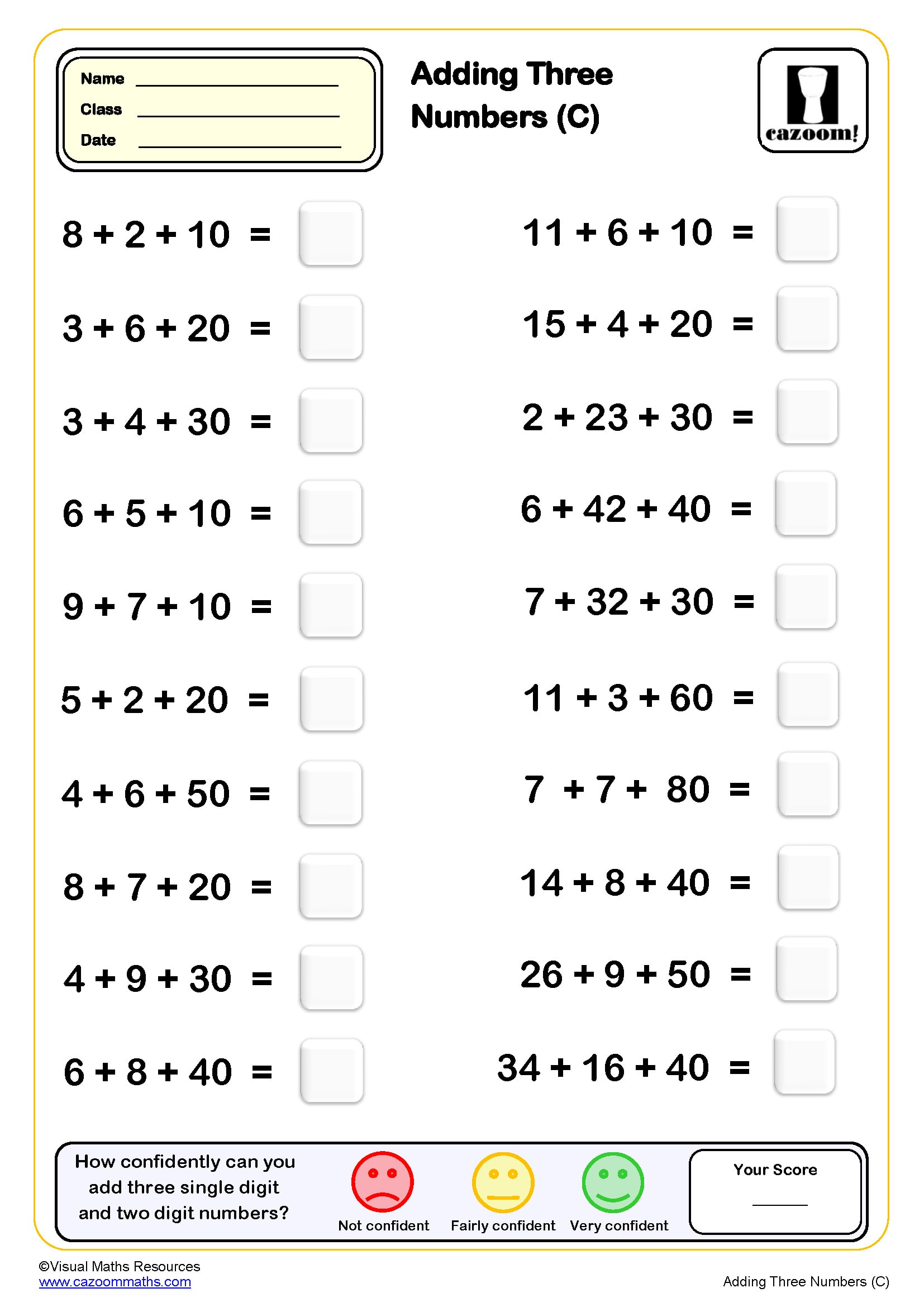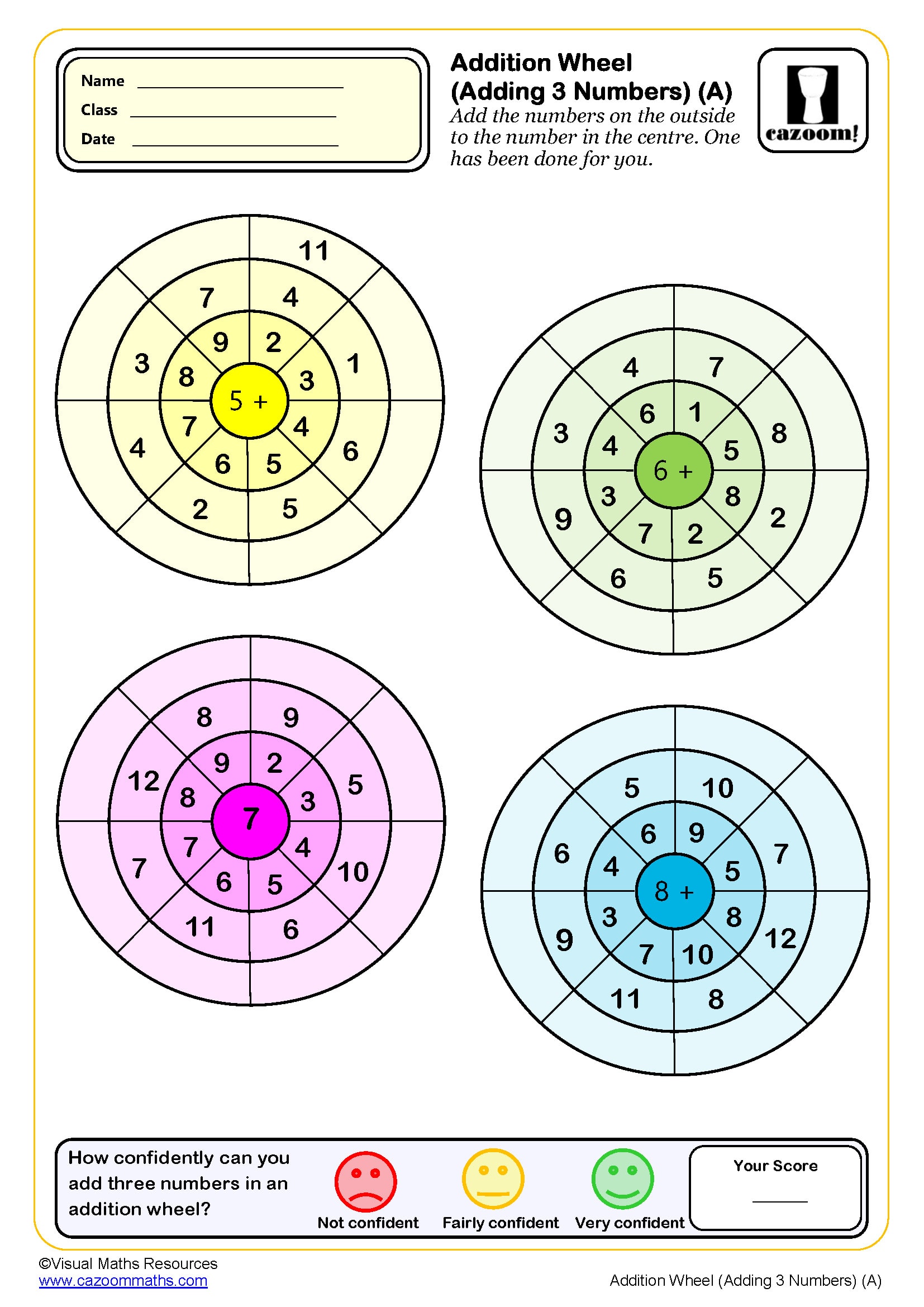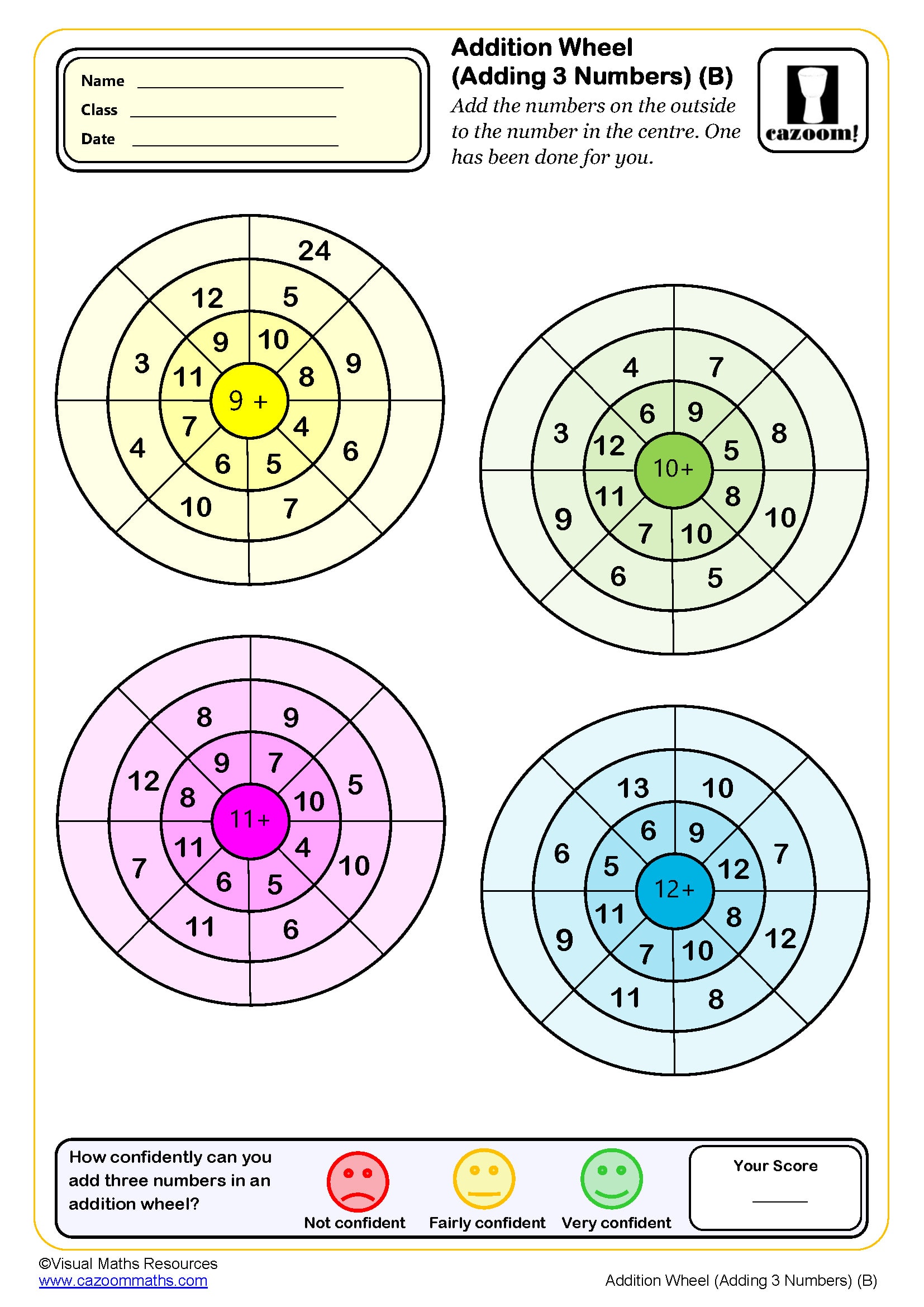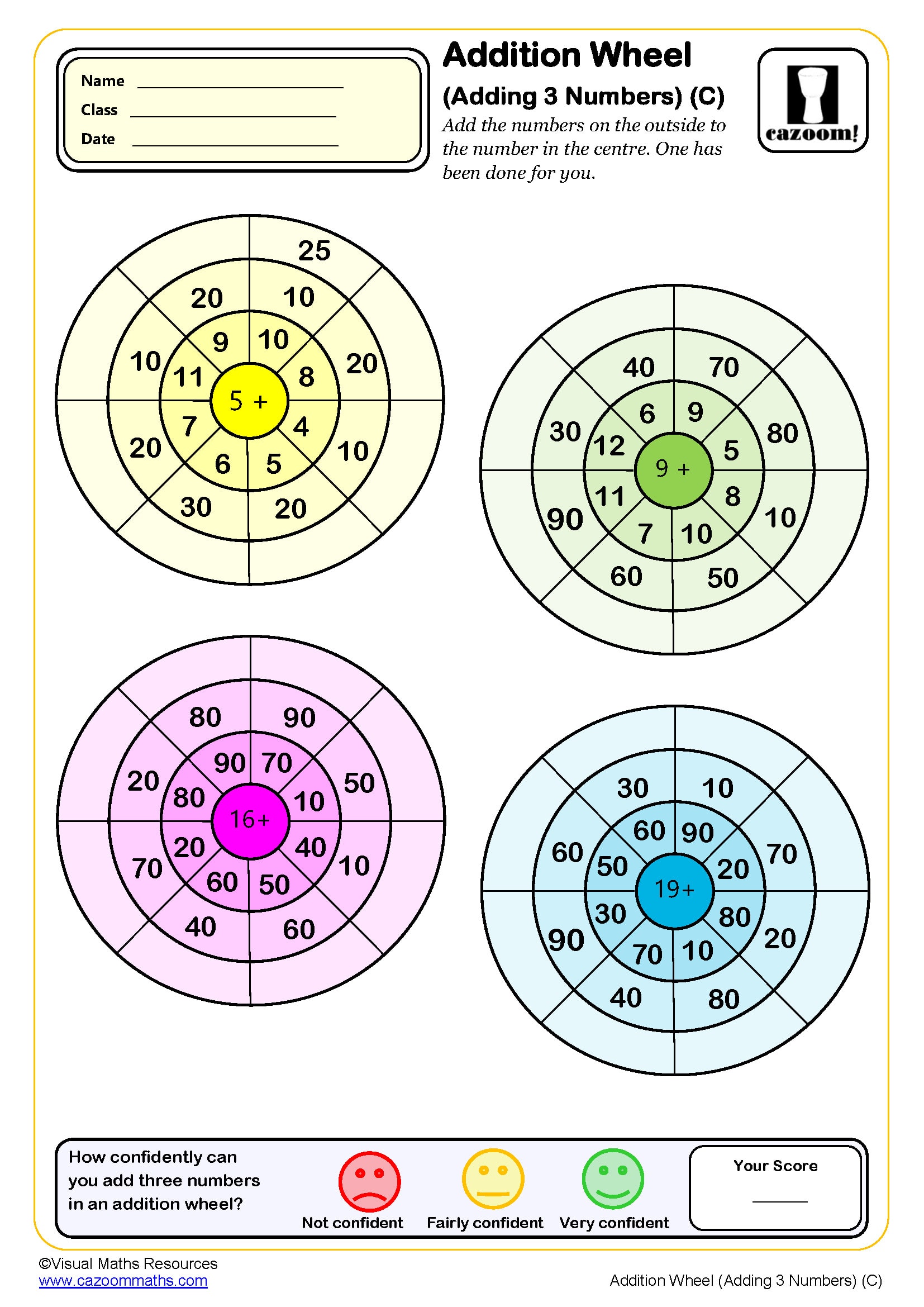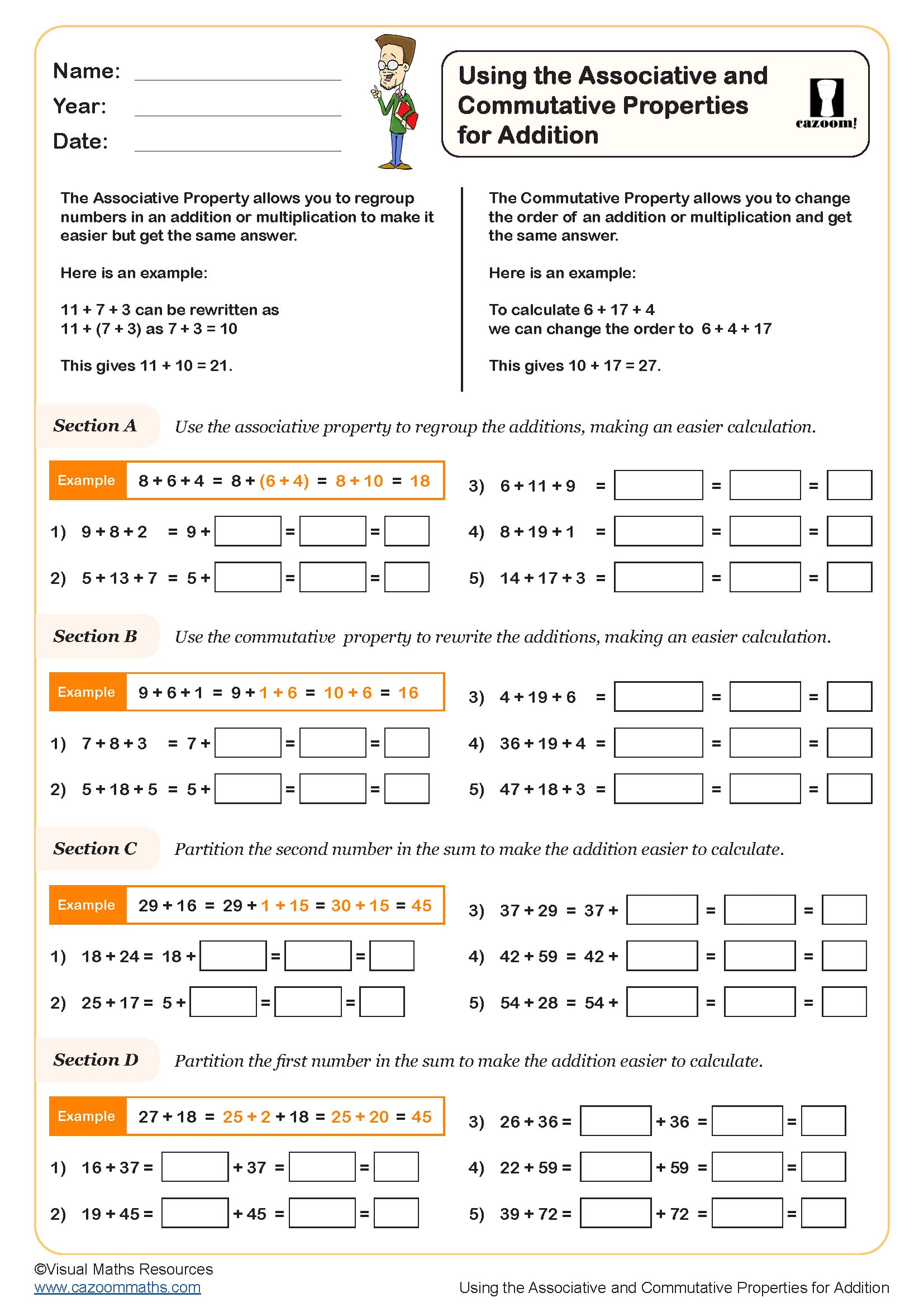Year 2 Adding Three Numbers Worksheets
All worksheets are created by the team of experienced teachers at Cazoom Maths.
Master Multi-Number Addition with Our Year 2 Three-Number Worksheets Collection
Finding quality adding three two-digit numbers worksheets that actually engage Year 2 students isn't easy (we've been there!). Our collection tackles this challenge head-on with carefully scaffolded exercises that guide students through each step. From simple single-digit combinations to more challenging three-digit problems, these worksheets include detailed worked solutions that show students exactly how to approach each calculation methodically.
Essential Addition Skills Your Year 2 Class Will Master
We've packed quite a lot into these worksheets! Students start with basic three-number combinations before progressing to adding three two-digit numbers worksheets that really challenge their mental maths. The progression includes column addition, number bonds to 100, and those tricky carrying techniques that students often find daunting. Our 3-digit addition worksheets for grade 2 have become surprisingly popular - students love the satisfaction of tackling "big numbers" successfully.
Building Strong Mathematical Foundations Through Systematic Practice
KS1 students who master adding three numbers early develop much stronger overall numeracy skills. Regular practice with these worksheets helps Year 2 learners build the mental flexibility needed for more complex maths later on. The benefits extend well beyond addition, too - students gain confidence in problem-solving and develop better number sense overall.
• Strengthens mental arithmetic and calculation speed
• Builds confidence with multi-step mathematical processes
• Develops systematic thinking and logical reasoning
• Prepares students for formal column addition methods
• Creates solid foundations for multiplication and division concepts
Discover Where Three-Number Addition Skills Matter Most
Adding three numbers appears constantly across the curriculum - from measuring ingredients in cooking activities to calculating scores in PE games. We've found that students become genuinely excited when they spot these connections. It's actually quite satisfying when they realise how often they're using these skills without even thinking about it.
• Calculating total costs when shopping with pocket money
• Working out combined scores in sports and games
• Measuring ingredients for science experiments and cooking
• Adding up reading minutes across different sessions
• Computing distances in geography and outdoor learning
• Solving multi-step word problems across all subjects
